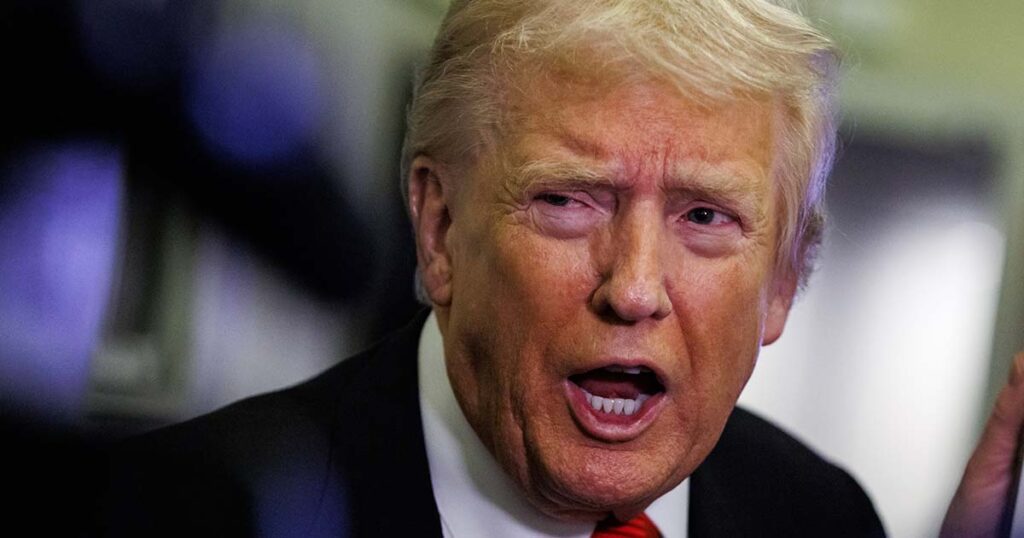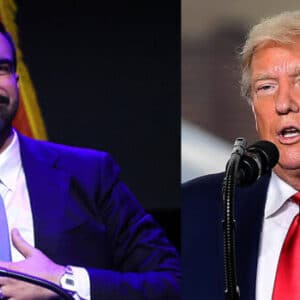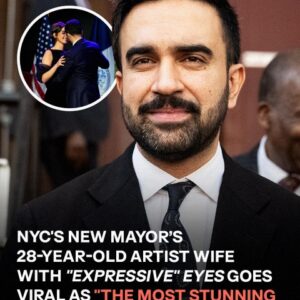Nobody expected New York’s mayoral race to end like this: a 34-year-old organizer few citywide voters knew a year ago just won in a landslide. With more than 97% of precincts reporting, Zohran Mamdani cleared at least 1.03 million votes—more than his rivals combined—defeating former governor Andrew Cuomo and Republican Curtis Sliwa. The result makes him New York City’s first Muslim mayor, the first of South Asian heritage, and the youngest to hold the office in roughly a century.
The scale of the win was matched by the turnout. The Board of Elections logged participation at a level the city hasn’t seen in over fifty years, pushing past two million ballots. For Democrats, the night read as a tailwind heading into next year’s races; for Mamdani, it was the culmination of a campaign built on ground-level organizing, a plainspoken affordability agenda, and an online presence that shifted his profile from niche to citywide.

Outside the Brooklyn Paramount on election night, he framed the victory as a statement about who the city is—and who leads it.
“New York will remain a city of immigrants, a city built by immigrants, powered by immigrants and, as of tonight, led by an immigrant.”
London mayor Sadiq Khan chimed in from across the Atlantic, calling it a win for optimism over fear and adding,
“New Yorkers faced a clear choice – between hope and fear – and just like we’ve seen in London – hope won.”
Mamdani also aimed squarely at President Donald Trump, signaling the confrontations to come.
“Donald Trump, since I know you’re watching, I have four words for you: turn the volume up!”
That posture wasn’t new. Throughout the campaign, he positioned himself as a foil to Trump-era policies—especially on immigration—and promised to use City Hall as a stage and a lever. As he told supporters, the work is as much about preventing a repeat of the past as it is about managing the present:
“If anyone can show a nation betrayed by Donald Trump how to defeat him, it is the city that gave rise to him. And if there is any way to terrify a despot, it is by dismantling the very conditions that allowed him to accumulate power. This is not only how we stop Trump, it’s how we stop the next one.”
Trump, for his part, has already warned that a Democratic socialist in charge could threaten New York’s federal funding, telling “60 Minutes” that,
“If you have a communist running New York, all you’re doing is wasting the money you’re sending there.”
Mamdani answered that head-on, tying his agenda to a collective mandate rather than a personal platform:
“So hear me, President Trump, when I say this: To get to any of us you will have to go through all of us.”
What that agenda looks like is no mystery. Mamdani campaigned on a slate of affordability measures: a rent freeze for rent-stabilized apartments, a push to expand city-owned grocery options in food-insecure neighborhoods, and free fares for public transit riders. He’s backed universal childcare and a pathway to a $30 minimum wage by 2030. On public safety, he’s proposed a Department of Community Safety to respond to mental-health crises without defaulting to police, part of a broader quality-of-life pitch grounded in prevention and services.
Paying for it would require political capital beyond City Hall. Mamdani has argued for higher taxes on corporations and the city’s wealthiest households, a move that would need cooperation from state leaders and likely weather headwinds in Albany. Even allies concede that parts of the program face a bumpy road. But supporters say the vote total itself is a mandate: a sprawling, five-borough coalition endorsing a left-leaning, populist message that promises immediate relief on kitchen-table costs.
The personal firsts were impossible to separate from the policy. A year ago, Mamdani’s name was unfamiliar in many districts. By election night, he stood as a symbol of a changing city: a South Asian, Muslim New Yorker stepping into the office once defined by party bosses and political lifers—and doing so with a record-setting margin.
If the victory speech was any guide, he plans to govern with the same mix of defiance and pragmatism that took him here. The new mayor-elect didn’t linger on enemies; he talked about rent, transit, childcare, and wages. He nodded to national politics but brought the focus back to city streets and subway platforms. The message was simple: history made at the polls only matters if it becomes policy in people’s lives.
The fight ahead will test how far that promise can stretch—through budget negotiations, statehouse compromises, and national crossfire. For now, though, New York woke up to a fact that would have sounded improbable not long ago: the city chose change, and it did so decisively.






